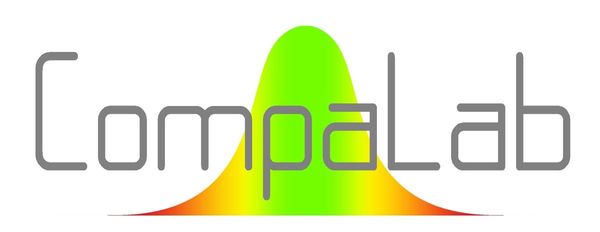Chemical analysis on aluminium alloy
Presentation for participants
|
CA25AA |
|||||||||||
|
References of test methods |
All methods can be used |
||||||||||
|
Frequency |
Each year |
||||||||||
|
Main characteristics |
Cu%, Mg%, Zn%, Pb%, Ni%, Ti%, Cr%, V%, Fe%, Si%, Mn%, Al% |
||||||||||
|
Other characteristics |
All other chemical elements existing in metal |
||||||||||
|
|
Caution The number of determinations may be low for the secundary characteristics, what may make inefficient the comparison between laboratories |
||||||||||
|
Determination of the assigned values (“true values” for each characteristic) |
By statistical computation of the totality of the results with possible selection on competence criteria (accreditation, validation by a reference body, quantity of tests performed in the year), test to detect possible collusion, merging of results not obtained in reproductibility conditions, suppression of technically unvalid results. |
||||||||||
|
Type of statistical computation |
For numerical results, the statistical computation will provide an assigned value with its attached uncertainty, values of standard deviations for repeatability and reproductibility, limits of alerts for bias and repeatability of the participant, indiviual values for uncertainty of results of participants. |
||||||||||
|
Number of products submitted to tests |
1 |
||||||||||
|
Number of samples per participation |
3 |
||||||||||
|
Max number of operators per participation |
10 (For this ILC, the type of test and sample size allow to provide results determined by several different operators and by several different methods) |
||||||||||
|
Product submitted to tests |
Aluminium alloy |
||||||||||
|
Type of samples |
Discs |
||||||||||
|
Approximate dimensions of samples |
Ø40x10 mm |
||||||||||
|
Specific preparation to be performed by the participant |
Extraction of a test specimen |
||||||||||
|
Special notice for this ILC |
All methods may be used. All chemical elements may be determined by the participating laboratory. However, a statistical computation is performed only if a sufficient quantity of results is received. |
||||||||||
|
Time schedule: |
|||||||||||
|
Opening date of registrations |
20/12/2024 |
||||||||||
|
Registration deadline |
15/03/2025 |
||||||||||
|
Date of shipment of samples |
30/05/2025 |
||||||||||
|
Start of the tests |
03/06/2025 |
||||||||||
|
Deadline for carrying out the tests and providing the results |
25/08/2025 |
||||||||||
|
Date of delivery of reports |
07/10/2025 |
||||||||||
|
Note: After the deadline, registrations are still possible. Contact us at ilc@compalab.org for more information. |
|||||||||||
|
Price (€) |
325 |
||||||||||
|
Price if online payment (€) |
260 |
||||||||||
|
Approximate weight (kg) |
1 |
||||||||||
Expected levels of the main elements
| Si | 0,0x |
| Fe | 0,x |
| Cu | x,x |
| Mn | 0,0x |
| Mg | x,x |
| Cr | 0,x |
| Zn | x,x |
| Ti | 0,0x |
| Design of the program: CompaLab |
| Product supply and sample preparation: CompaLab |
| Check of the properties of the material: supplier of the product |
| Homogeneity assurance of the samples: CompaLab |
| Mix and packaging of the samples: CompaLab |
| Transportation of the samples: supplier |
| Check of answers, analysis of the data, wording and issue of the report: CompaLab |
The homogeneity of the samples is assessed a posteriori, on the basis of the participants' results, because of the low and acceptable risk of distributing a non-homogeneous batch of entities subjected to the test.
The experience acquired in organising these interlaboratory comparisons supports the idea of a low risk of the impact that heterogeneity would have on the evaluation of performance.
If this is not the case, the provisions of annex B ISO 13528 are implemented during the assessment.
Note: The methods used by laboratories are very often in-house methods. For minor elements, we may end up with a greater diversity in the performance of the assay methods applied by the participants. This may have an impact on the estimate of the standard deviation of homogeneity (overestimation). This is less true for the major elements.
